How to tile a bathroom – everything you need to know
The right tiles can completely transform your bathroom. But, there’s no need to bring in the professionals – with the right materials and preparation, it’s an easy DIY project.
We've put together a handy guide with everything you need to know about how to tile a bathroom. A beautiful bathroom can be a sanctuary in which to escape the stresses of everyday life – and refreshing your tiles can completely transform your bathroom from a dreary utilitarian space into your own personal oasis. While it might seem daunting at first, with the right tools and preparation tiling a bathroom is a fairly straightforward DIY project.
The first thing you’ll need to do is decide what kind of look you're going for and select your bathroom tiles. These days, there’s a whole world of different options, from bold colours that make a statement, to playfully patterned or elegantly handcrafted tiles. When you’re selecting tiles, don’t forget to think about what colour grout would work best.
If you have to remove old tiles first, you’ll need a hammer to break up the tiles and a chisel to remove the tiles and mortar. If you’re having trouble removing the mortar, it may be easier to replace the underlayment. Once you’ve removed the old tiles, you’re ready to start the fun part!
Tom Bowman, Director of Sales at British tile brand Bert & May, recently tiled his own home bathroom, using the brand’s Eugene range. To give you an insight into what it’s like to tile a bathroom yourself, he’s shared his top tips for tiling with us. Read on and you’ll be an expert in no time.
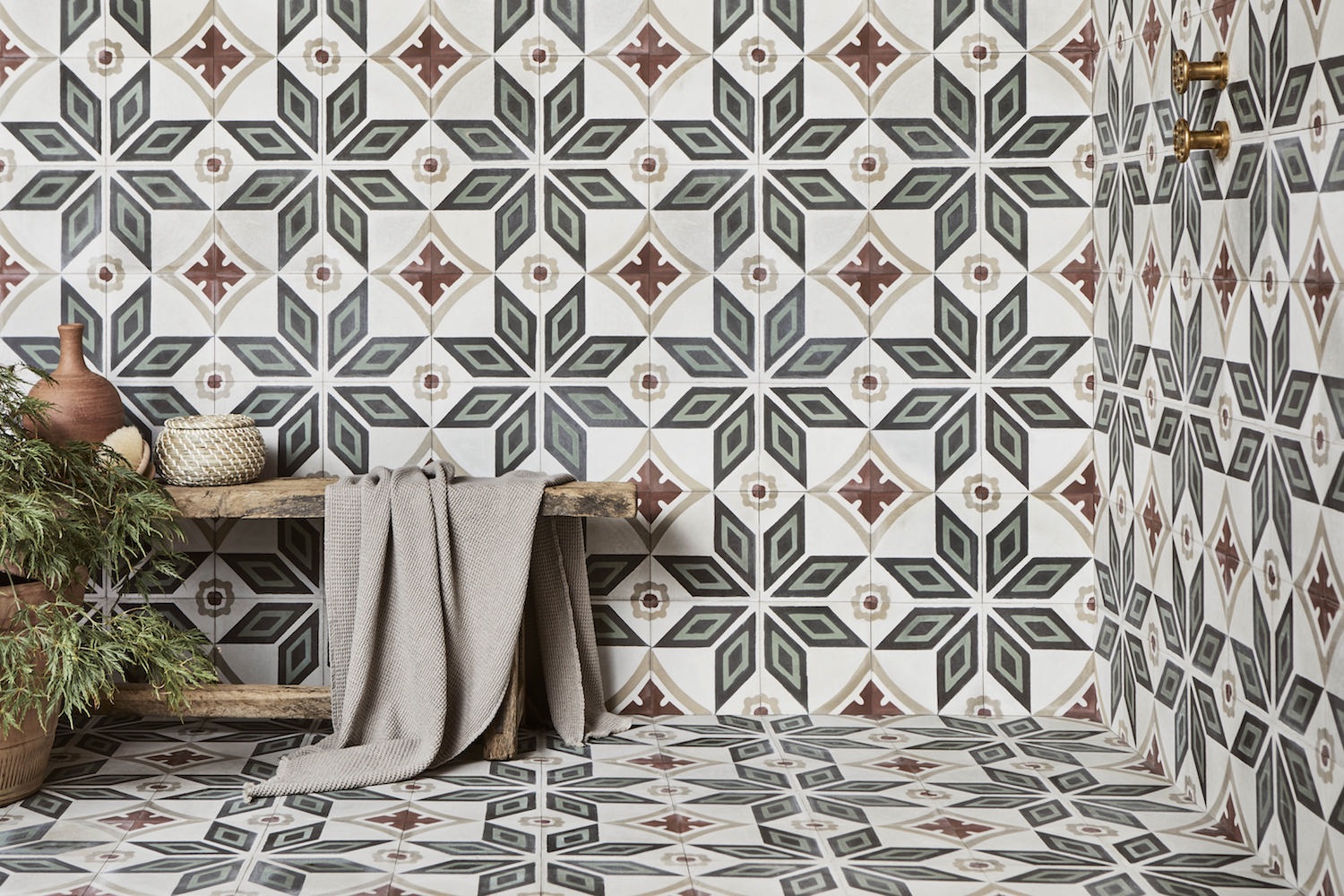
See more modern bathroom ideas
Can you tile a bathroom yourself?
Yes! But make sure you do the proper preparation, have all the necessary materials to hand, and take your time. “A competent DIYer should have no issues,” says Bowman. “I’m no professional and have tiled large areas of my current house – and they all look great! I would always encourage our customers to take on the challenge, as the end result is so much more satisfying!”
The Livingetc newsletters are your inside source for what’s shaping interiors now - and what’s next. Discover trend forecasts, smart style ideas, and curated shopping inspiration that brings design to life. Subscribe today and stay ahead of the curve.
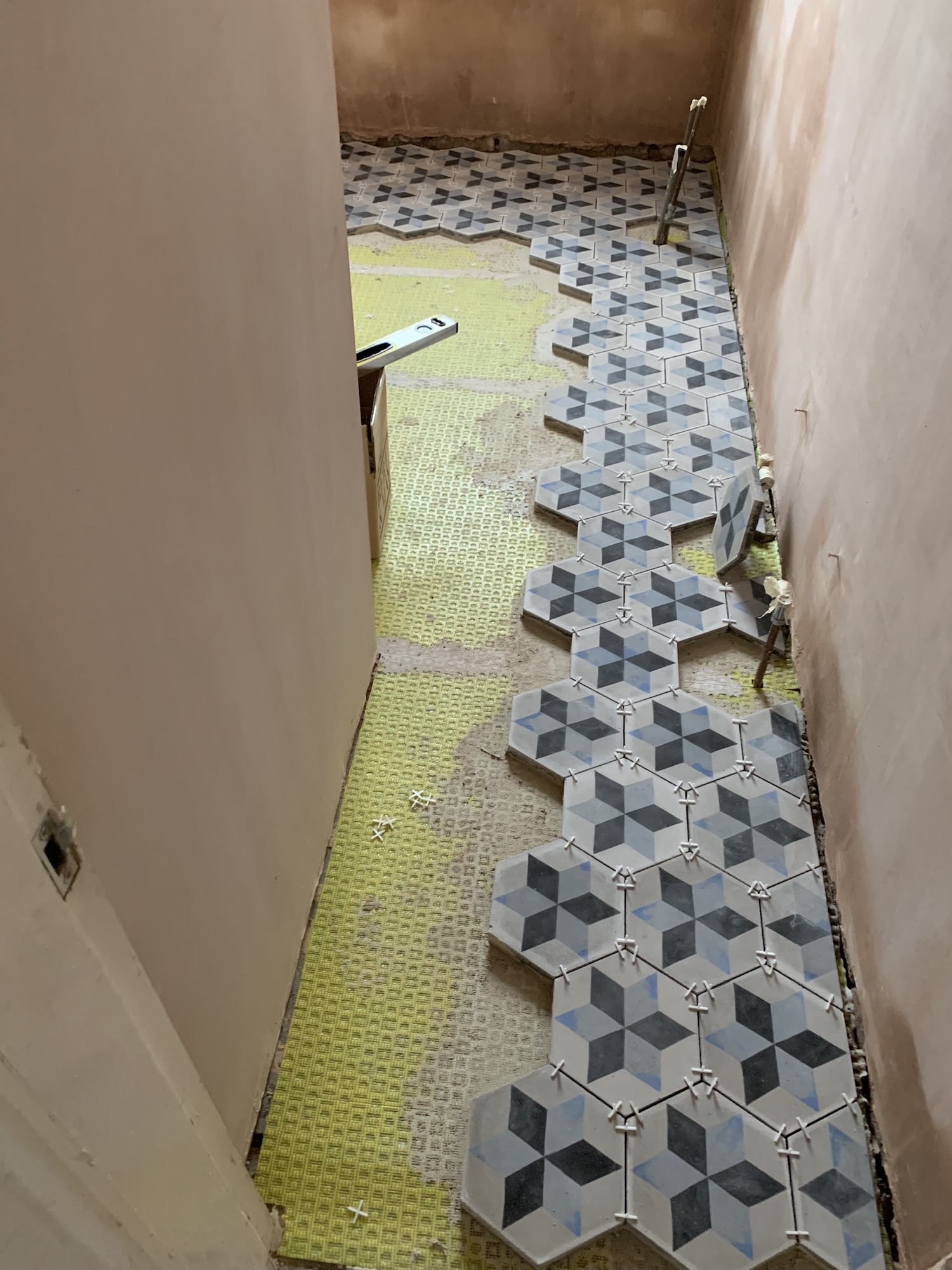
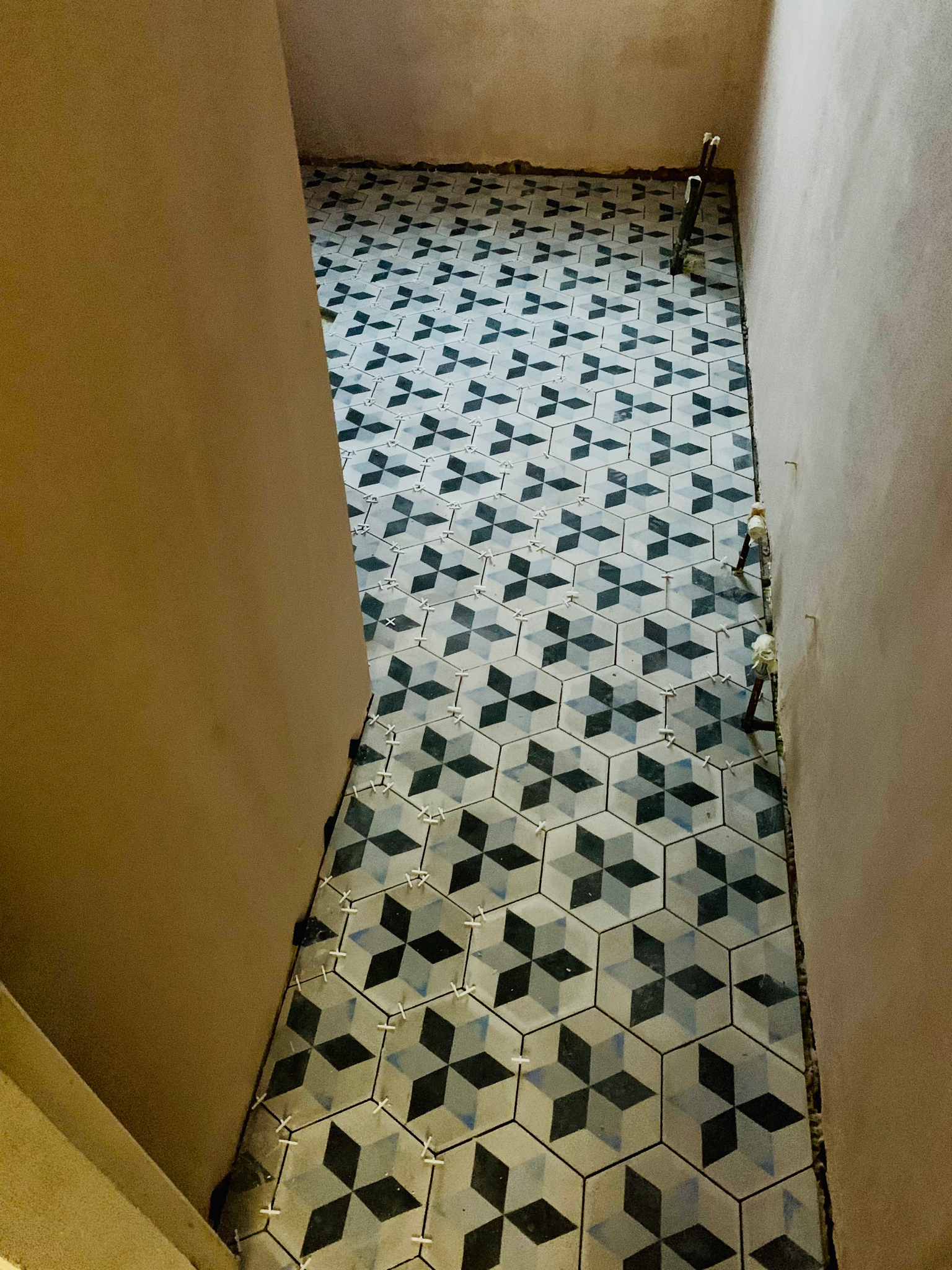
See Also:Bathroom floor tile ideas
What do you need to tile a bathroom?
“In terms of materials, I would always recommend a tile matting (underlayment) such as Ditra mat to be installed on any bathroom floor before installation of the tiles – this is around £15psqm,” says Bowman. “I would also recommend a good quality flexible tile adhesive and Mapei grout in a colour that works with your tile choice. For the final finish and seal, we use Fila products.”
To lay the tiles, you’ll need basic tiling tools, including a bucket, bucket trowel, tile trowel, sponge, and either an angle grinder with a diamond disc or a water fed tile cutter. Tile spacers are also essential to ensure your tiles are evenly spaced, and a spirit level will make sure everything is level.
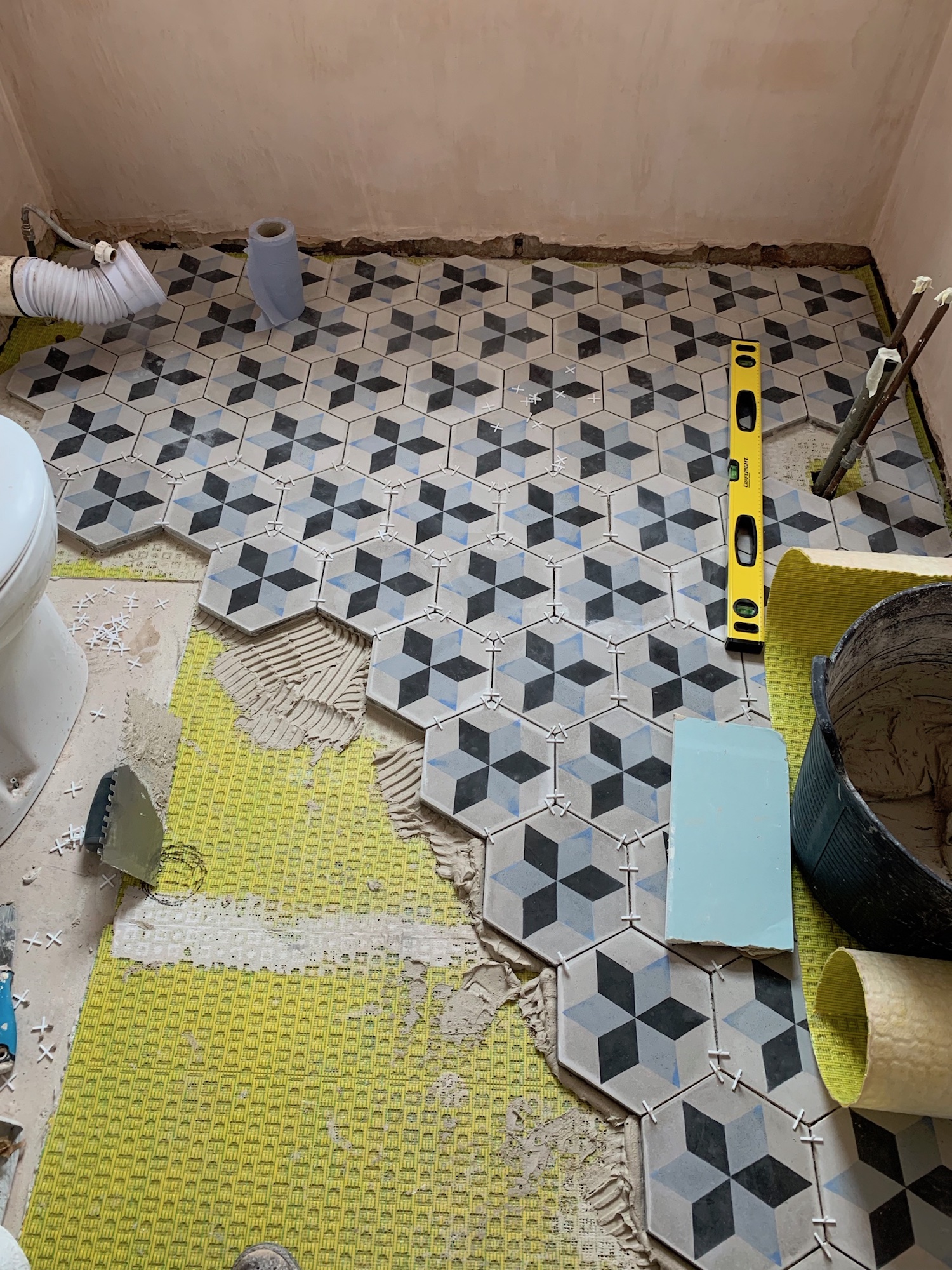
Where do you start when tiling a bathroom?
The very first thing to do is measure the space accurately –as they say, “measure twice, cut once”. Also ensure that your space and the tiles are clean, as you don’t want any grit or dirt getting stuck under the tiles.
“It is important to lay out the tiles in the space so you can see how they will fit and measure to ensure you will get even or logical cuts in the tiles,” says Bowman. “I always think about how you enter the room, and then make sure the tiles are square to that. To start the process, it does depend on the shape of tile. It is often suggested to start in the middle of the room – and this is certainly sensible if you have an out of square room or uneven wall. For my example, I have started from the most visible corner and wall having measured the placement of the tiles.”
When you start laying the tiles, start with the full tiles and leave any tiles that need to be cut to fit until last.
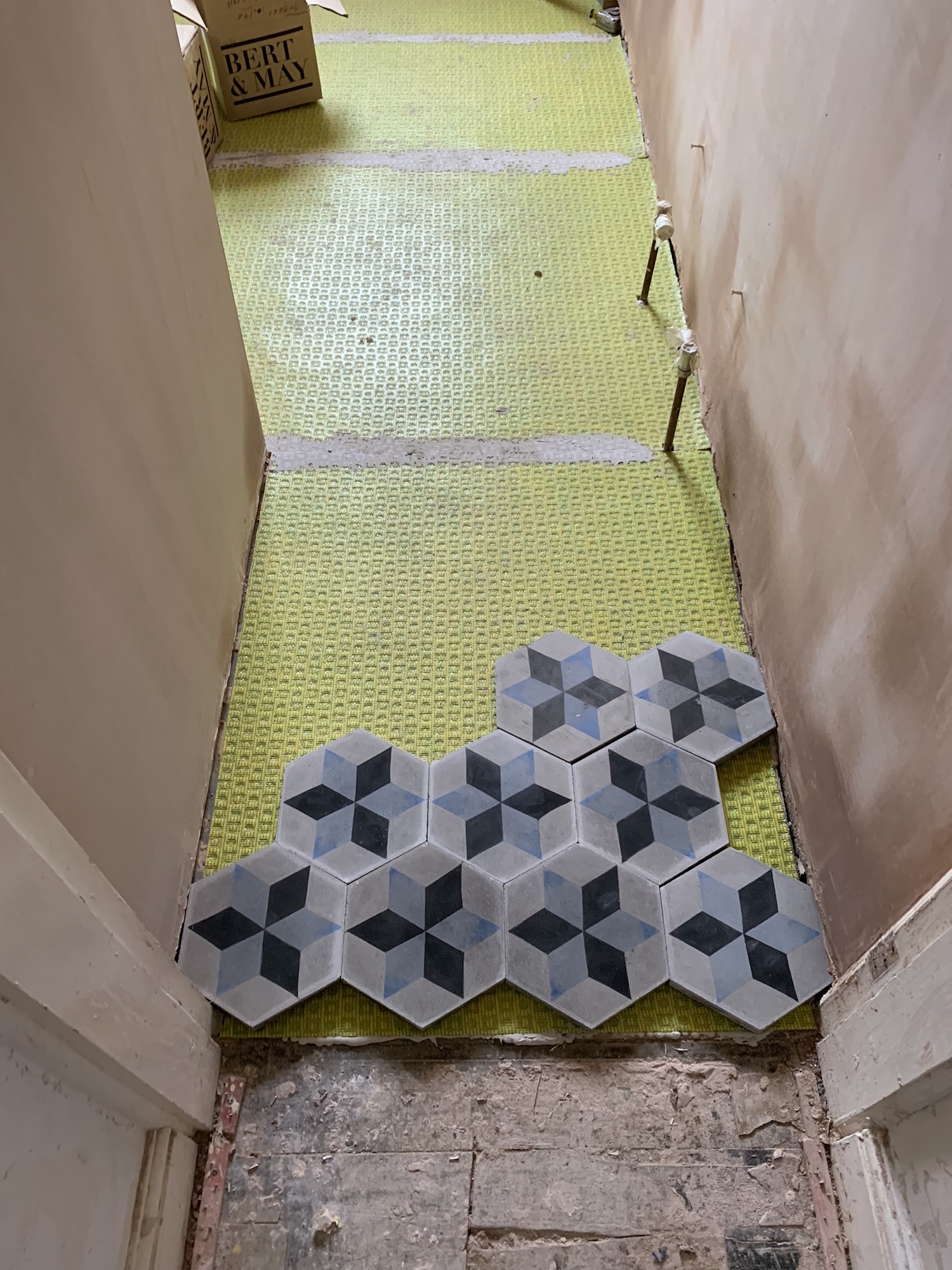
See Also:Bathroom Wall Tiles: Great Ideas For Bathroom Walls
Do you tile the walls or the floors first in a bathroom?
“I would always recommend the walls first, if possible,” says Bowman. “But, installation of sanitaryware does not always allow this. If you start with the floor it puts the tiles at risk of damage or staining during other parts of the project.”
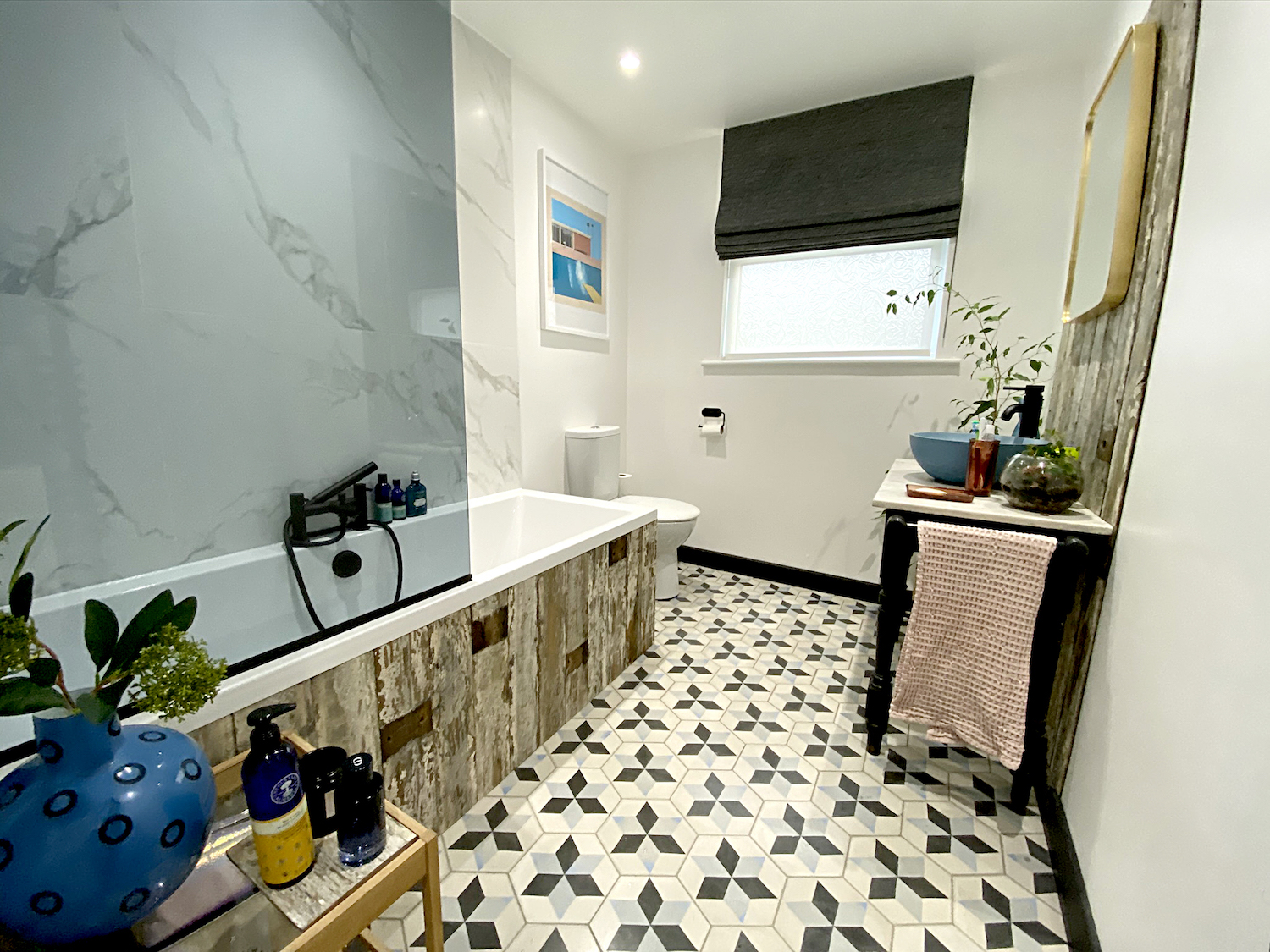
See Also:Stunning Shower Room Ideas andStylish Wet Room Ideas
Our tips for tiling a bathroom
1. “If you are living in the house and it is your only bathroom, think about the sequence of the project,” advises Bowman. “You might only be able to work on sections at a time to ensure you can reinstate the toilet or shower for usage.”
2. If it’s your first tiling project, use larger tiles – there are fewer tiles to lay, and less grouting.
3. Order more tiles than you need so you’ll have spares in case you break any or need them in the future. Most tilers recommend adding 10% more to your order than you need to fill the space.
4. Renting the equipment is often much more cost effective than buying.
5. Let the tiles dry for 24 hours before beginning to grout – and don’t forget to seal natural stone tiles to avoid staining.
6. Use epoxy instead of grout to hide dirt and grime, or use grey grout rather than white or black.
7. Clean the grout off the tiles as you go to avoid stains – and don’t tip grout residue down your sink. Instead, rinse buckets outside.
8. Silicone the edges where the tiles meet the skirting and other materials.
9. Finally, don’t forget to seal your tiles to stop mould and stains and keep them looking fresh for longer. You’ll need to reseal the tiles every 6-12 months.
10. “If your budget allows for it, go for underfloor heating,” recommends Bowman. “It works so well with cement encaustic tiles, and gives such a lovely warmth on your feet. There are some great DIY options out there for this too.”